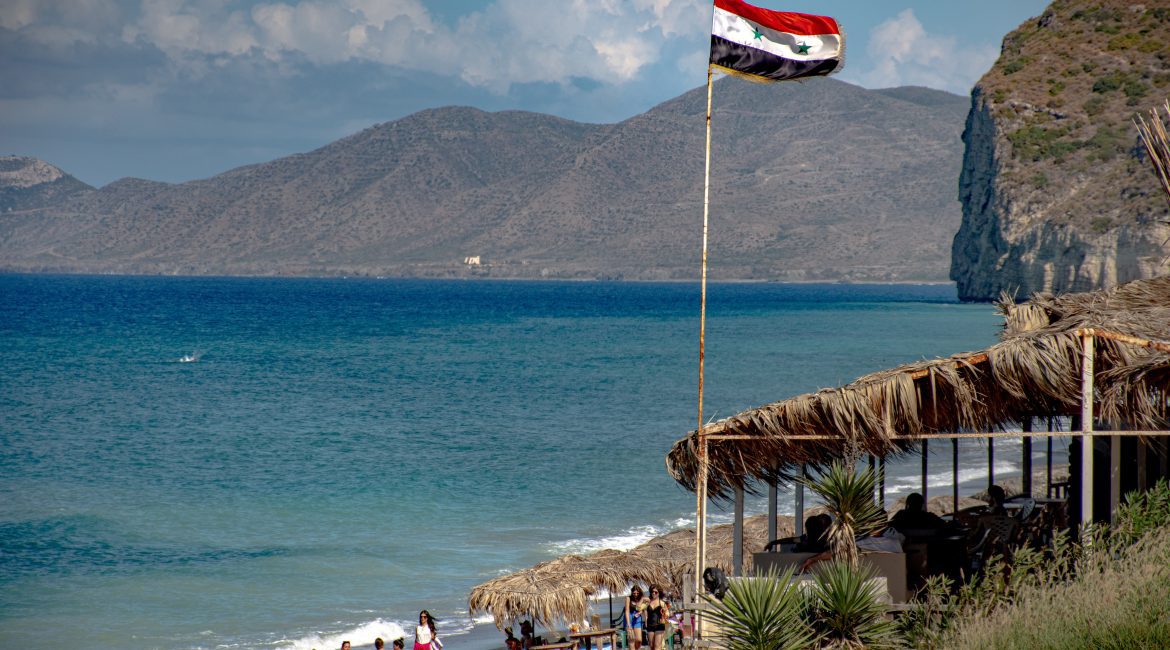A group of Non-Governmental Organizations and local humanitarian organizations, in cooperation with the service authorities in the opposition-held areas in northwestern Syria, have begun implementing a number of service projects, and a large-scale renovate campaign for roads, drinking water networks, and sewage channels, with the aim to improve the services and facilitate the lives of more than 6 million people, with the beginning of this summer season.
In Idlib governorate, several international and local humanitarian organizations, including the British Human Appeal Organization, are implementing a number of service projects (lighting, paving and leveling roads between residential communities and surrounding cities), within the Killi area, while the “Goal International” organization builds residential apartments and paves main and secondary roads between residential communities.
The “People” organization is also working to restore schools and support those affected by the earthquake with cash, and the “Hand” organization is working to support health projects, in addition to the “Ataa for Relief and Development” association which constructs new apartments for the displaced, builds schools and asphalts roads north of Idlib.
In the meantime, the "Watan" organization began working on the implementation of a number of development and service projects, foremost of which is the rehabilitation of drinking water network lines and high tanks, and feeding water stations with electric energy.
Directors in the organization explained that they took the initiative to restore life to the city of Jisr al-Shughur (40 kilometers west of Idlib), by securing drinking water for the city’s residents and its surroundings, which number about 40,000 people. They stressed that the organization relies on financial grants provided by the United Nations High Commissioner for Refugees (UNHCR) and several supporters, including the International Organization for Migration and the United Nations Office for the Coordination of Humanitarian Affairs (OCHA), as well as by Japanese donors.
For his part, an official in the Ministry of Technical Services of the "Syrian Salvation Government" (backed by "Hay'at Tahrir al-Sham") in northwestern Syria stated that with the arrival of summer, a number of organizations initiated the implementation of development projects that provide a better life for the population in the region, including for the displaced in camps and residential gatherings. Works is also underway to replace drinking water networks and open new sewage channels in areas where camps and residential gatherings proliferate.
An engineer of the Benaa Foundation for Development said, in a press statement, that a number of secondary and main roads are now being asphalted in northern Idlib, including the most important road that connects residential communities and camps for the displaced, which are inhabited by about a million people, in the areas of Atmeh, Qah, Deir Hassan and Aqrabat. At the same time, some other roads in the area are being repaired, after cracks have recently appeared on them that impede the movement of civilians and transportation, and create difficulties of delivering humanitarian aid and drinking water.
Residents in northwestern Syria believe that the campaign to repair the main roads, drinking water networks and other technical services carried out by the organizations are a major factor in stabilizing the humanitarian situation, especially in the camps for the displaced, where eroded roads with many cracks are an obstacle.
In Idlib governorate, several international and local humanitarian organizations, including the British Human Appeal Organization, are implementing a number of service projects (lighting, paving and leveling roads between residential communities and surrounding cities), within the Killi area, while the “Goal International” organization builds residential apartments and paves main and secondary roads between residential communities.
The “People” organization is also working to restore schools and support those affected by the earthquake with cash, and the “Hand” organization is working to support health projects, in addition to the “Ataa for Relief and Development” association which constructs new apartments for the displaced, builds schools and asphalts roads north of Idlib.
In the meantime, the "Watan" organization began working on the implementation of a number of development and service projects, foremost of which is the rehabilitation of drinking water network lines and high tanks, and feeding water stations with electric energy.
Directors in the organization explained that they took the initiative to restore life to the city of Jisr al-Shughur (40 kilometers west of Idlib), by securing drinking water for the city’s residents and its surroundings, which number about 40,000 people. They stressed that the organization relies on financial grants provided by the United Nations High Commissioner for Refugees (UNHCR) and several supporters, including the International Organization for Migration and the United Nations Office for the Coordination of Humanitarian Affairs (OCHA), as well as by Japanese donors.
For his part, an official in the Ministry of Technical Services of the "Syrian Salvation Government" (backed by "Hay'at Tahrir al-Sham") in northwestern Syria stated that with the arrival of summer, a number of organizations initiated the implementation of development projects that provide a better life for the population in the region, including for the displaced in camps and residential gatherings. Works is also underway to replace drinking water networks and open new sewage channels in areas where camps and residential gatherings proliferate.
An engineer of the Benaa Foundation for Development said, in a press statement, that a number of secondary and main roads are now being asphalted in northern Idlib, including the most important road that connects residential communities and camps for the displaced, which are inhabited by about a million people, in the areas of Atmeh, Qah, Deir Hassan and Aqrabat. At the same time, some other roads in the area are being repaired, after cracks have recently appeared on them that impede the movement of civilians and transportation, and create difficulties of delivering humanitarian aid and drinking water.
Residents in northwestern Syria believe that the campaign to repair the main roads, drinking water networks and other technical services carried out by the organizations are a major factor in stabilizing the humanitarian situation, especially in the camps for the displaced, where eroded roads with many cracks are an obstacle.

